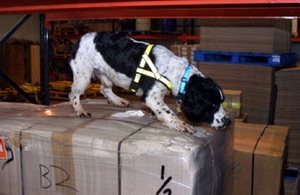COP26 President Alok Sharma’s Speech at the High-Level Ministerial round table on pre-2030 ambition
Thank you, Minister Jorgenson.
Can I just remind all of us friends, that at COP26 we did resolve collectively to peruse efforts to limit the temperature increase to 1.5 degrees.
I have always said what we agreed in Glasgow and Paris has to be the baseline of our ambition.
We’ve got to stick to that commitment. We cannot allow any backsliding.
But we are already at 1.1 degrees global warming and I know I don’t have to remind all of you the impact of that around the world.
Even at 1.5 degrees we are still going to have devastating outcomes for many millions. As our friend from Bangladesh reminded us 1.5 needs to be a red line.
And this cannot be the COP where we lose 1.5 degrees.
So, we’ve got to fight for this and every fraction of a degree absolutely makes a difference.
And it’s the difference, for very many, including each of your countries, between a tolerable existence and an impossible future.
Let me remind you a year ago what Mia Mottley said – in Glasgow she said 2 degrees “would be a death sentence” for very many nations around the world.
I believe we can keep 1.5 alive, we’ve got the business community on our side.
We all would have seen on Saturday, 200 international businesses signing up to an open letter in defence of 1.5.
We are seeing impressive sectoral impacts; renewables, zero emission vehicles.
We’ve heard about that this morning.
Yes, there is serious work going on with our finances. We need to be in a place where we can see more in terms of MDB reform, we need to do more on JETP. Yes, we need to include more on finance.
But on 1.5 we need to make sure that we reaffirm our commitments to that.
We’ve got a G20 leaders meeting going on right now.
They’ve showed leadership last year. They need to show that again.
They need to, coming out of that G20, reaffirm their commitment to Paris and to Glasgow.
In terms of mitigations outcomes here, really quickly there are four things we need to have.
One is for those countries that have not set out their revised NDC to do so aligning with 1.5. We’ve got 33 countries that have already done so, including the UK.
Secondly let’s make clear our commitments to the science, no rowing back on the science, we heard from the science this morning.
Thirdly, further steps to phasing out coal, phasing out fossil fuel subsidies.
And fourthly we need to agree the legalities on the Mitigation Work Programme to shift the dial on implementation and ambition.
The reality is without progress on mitigation we are going to beyond our ability to adapt. And of course I want to see progress made on loss and damage here, but unless we stick to the mitigation piece all of that is going to be a lot more difficult.
So friends, in conclusion, we’ll either leave Egypt having kept 1.5 alive or this will be the COP where we lose 1.5.
You need to work out how you want future generations to look upon this COP and each of us individually as countries.
It’s really up to us to decide. I hope we will decide to keep 1.5 alive.
Thank you.


